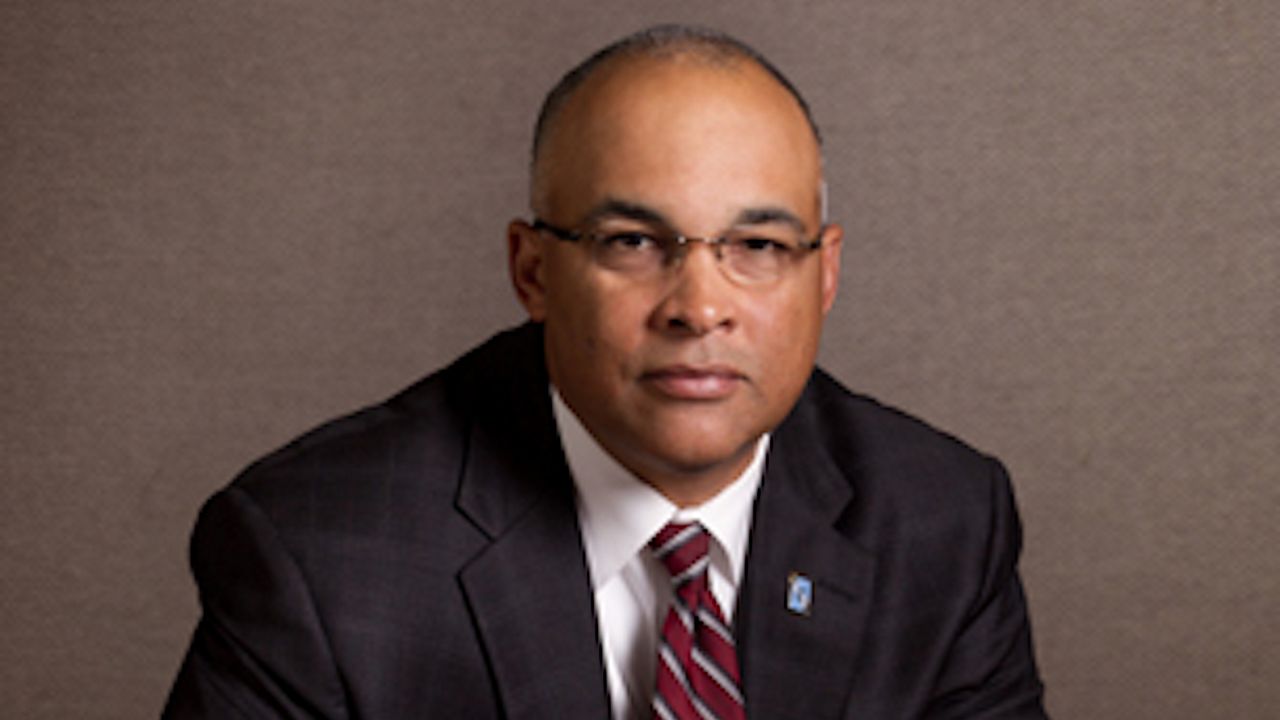LOUISVILLE, Ky. — On Tuesday, Mayor Greg Fischer announced Edward Harness as his choice to be Louisville’s first inspector general, a newly created position that will investigate allegations of improper conduct by members of Louisville Metro Police Department.
An attorney and former police officer, Harness has spent the past six years serving in a similar role in Albuquerque, New Mexico. As executive director of the Civilian Police Oversight Agency, Harness conducted investigations of a police department embroiled in controversy, not unlike the situation he will step into in Louisville once confirmed by the Metro Council.
“It’s a loss to our community and a gain for Louisville,” said Peter Cubra, a disability rights lawyer and advocate for people incarcerated in Albuquerque's jail.
Cubra has worked with Harness dozens of times over the years and has found him to be “a very capable, honest, and decent person," he said.
Harness has “done very good work in Albuquerque, despite the fact that our police department is actively undermining efforts to reform it and our police union in particular has been battling to avoid the improvements that are required by the federal consent decree,” Cubra said.
In 2012, the Department of Justice announced a pattern or practice investigation into the Albuquerque Police Department over its use of excessive force. LMPD is currently the subject of such an investigation. In 2014, the DOJ announced its findings: APD officers frequently used deadly force against “people who pose a minimal threat,” and too often used force during encounters with the mentally ill, the DOJ said.
As a part of the agreement to overhaul APD in the aftermath of the investigation, the city created the CPOA.
Eric C. Olivas, chair of the board that oversees CPOA, offered a brief comment on Harness when reached via email. “I wish Ed the best of luck,” he wrote. His co-chair, Chantal M. Galloway, wrote, “The only comment I am prepared to give is that I appreciate Ed’s six years with the city of Albuquerque and offer my congratulations on his new position as Inspector General in Louisville.”
Robby Heckman is sad to see Harness go. “I'm worried about Albuquerque replacing him,” said Heckman, a steering committee member of APD Forward, a coalition of community groups that pushes for police reforms in Albuquerque.
Heckman has interacted with Harness over the years as a community activist and found him to be professional, prepared, and patient. He praised Harness’s command of the APD’s agreement with DOJ and his willingness to meet with concerned citizens.
“He's very good at transparency,” Heckman said. “I had a lot of questions about cases and he was very approachable and very transparent and provided the information and addressed our concerns.”
Harness told Spectrum News 1 that he’s proud of the work he’s done in Albuquerque.
“When I took over, oversight was found to be too closely aligned with the police department,” he said. “We are now independent and a trusted part of the community.”
“We've made great strides for oversight of the department and transparency for the public," he added.
Not everyone in Albuquerque is sad to see Harness go.
Chelsea N. Van Deventer is a former member of the CPOA board who resigned in 2019. In her resignation letter, the Albuquerque lawyer took issue with how Harness handled several cases that came in front of the board and criticized his “confrontational attitude.” Reached by Spectrum News 1, Van Deventer declined an interview, writing, “I’m sick of thinking about Ed.”
Harness said it's little surprise some CPOA board members didn't see eye-to-eye with him. He's served under 29 of them, he said, meaning there have been “29 different personalities, backgrounds, and experiences.”
“There’s bound to be conflict,” he said. “I'm strong-willed and I advocate for the process. I believe that is what I get hired to do.”
Cubra, the Albuquerque attorney, admitted that Harness has some detractors, both among those who vocally support the police and those who have been harmed by the police. But he said that's one of the surest indications that Harness conducted his duties with fairness.
“I think he was able to strike a balance between what was fair to cops and fair to the people who've been subjected to force by the cops,” Cubra said. “On the one hand, there are community members who said he should have acted more swiftly. He should have been more negative about the cops. He should have recommended stronger punishment. While there are others in the police union and elsewhere who think of him as too aggressive.”



